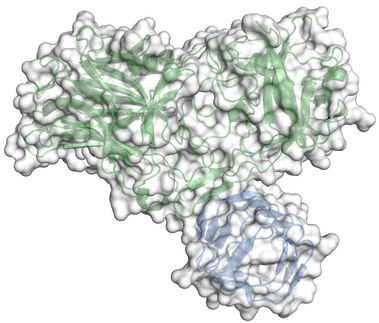Scripps Research Scientists: Compounds Show Significant Promise Against Botulinum Neurotoxins
Advertisement
Scientists at The Scripps Research Institute and the University of Wisconsin have identified two small molecules with promising activity against neurotoxins produced by the Clostridium botulinum. Because of the high cost and limited applicability of currently available treatments, the newly identified compounds have the potential to fill the existing therapy gap and to provide protection against a bioterrorism attack using the toxin.
Using a multifaceted screening approach, Kim Janda, a Scripps Research scientist who led the study, and his colleagues identified the two compounds and tested their efficacy in both cell-based assays and in mice exposed to the toxin. One compound extended survival time by 36 percent (from 484 minutes to 659 minutes) a remarkable achievement considering its simple structure. Moreover, 16 percent of the animals treated with the second molecule survived with no obvious symptoms of botulism. No significant side effects were observed with either molecule.
Janda pointed out that the two compounds showed surprisingly little activity in cellular assays, suggesting that these standard cell-based screening methods may miss promising therapeutic candidates.
"Our study showed no correlation between cellular activity and in vivo efficacy," Janda said, "which is highly unusual. Clearly, cell-based assays do not provide all the necessary information-animal-based studies are still an essential part of the discovery process. These findings validate our multidisciplinary screening approach to identify unrecognized chemical structures as potential treatments."
Original publication: Lisa M. Eubanks, Mark S. Hixon, Tobin J. Dickerson, Wei Jin, Sukwon Hong, Dale L. Boger, Colin M. Clancy, Eric A. Johnson, William H. Tepp, Michael R. Baldwin, Joseph T. Barbieri, Carl J. Malizio, Michael C. Goodenough, Lim Janda; "An In Vitro And In Vivo Disconnect Uncovered Through High Throughput Identification Of Botulinum Neurotoxin A Antagonists"; Proceedings of the National Academy of Sciences. 2007.
Other news from the department science
Most read news
More news from our other portals
See the theme worlds for related content
Topic World Cell Analysis
Cell analyse advanced method allows us to explore and understand cells in their many facets. From single cell analysis to flow cytometry and imaging technology, cell analysis provides us with valuable insights into the structure, function and interaction of cells. Whether in medicine, biological research or pharmacology, cell analysis is revolutionizing our understanding of disease, development and treatment options.

Topic World Cell Analysis
Cell analyse advanced method allows us to explore and understand cells in their many facets. From single cell analysis to flow cytometry and imaging technology, cell analysis provides us with valuable insights into the structure, function and interaction of cells. Whether in medicine, biological research or pharmacology, cell analysis is revolutionizing our understanding of disease, development and treatment options.
























































